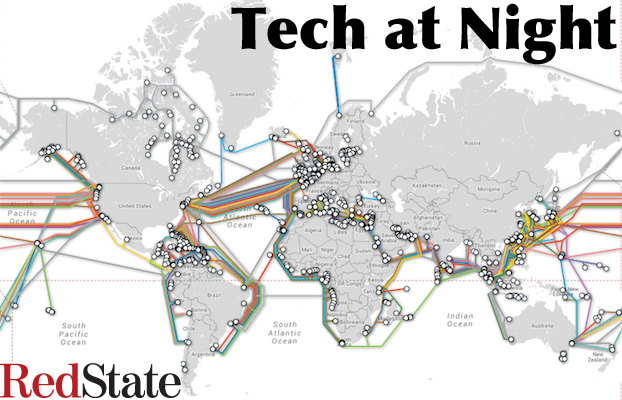
Bitcoin is an electronic “currency” based on math similar to what it used by cryptography. It has little in the way of central authority, just some software developers who push through software changes on a whim, however this limited authority has no means of moving money around.
As a result, Bitcoin is dangerous, useful to criminals but lacking in the basic property rights that ordinary people need in order to operate in an economy.
Well, “money.” Bitcoins are stored in a central database called the “Blockchain.” This database is stored by all the people on the Internet running computers that are trying to make new Bitcoins, a process called “mining.” Bitcoins are made by solving specific hard-to-solve math problems, that basically have to be solved by trial and error. Whenever a person finds the solution to the current math problem, the rules of Bitcoin say that person gets bonus Bitcoins in his wallet. Overtime these awards get smaller and smaller, and eventually turn to zero, so there is a cap on the number of Bitcoins that will ever be made.
So when a person has Bitcoins, what that means is that the person has the secret crypographic key needed to control a “wallet” in the Bitcoin Blockchain, the central database all the Bitcoin miners use. If you have the key to a wallet, you can send out the money in that wallet. No questions asked, no oversight.
Importantly, there’s also no way to reverse a Bitcoin transaction. Once it’s done, it’s done for good, even if it can be proven in court that the transaction was fraudulent. It’s all math, there is no central authority, so there’s no way to enforce a reversal of theft or fraud. Therefore, there are no property rights in the Bitcoin economy. The Bitcoin econony, like any anarchy, has no liberty. Only slavery./p>
Criminals are fine with that because they mostly use it to run drugs and child pornography, making hundreds of thousands of dollars with of Bitcoin to do so.
Bitcoin is not anonymous. If you use Bitcoins to buy something, then the Blockchain will keep a permanent record of that, and every Bitcoin transaction can be tracked in that way. Bitcoin is pseudonymous. There’s no name in the Blockchain, just a wallet. However again, if you ever buy anything, then your wallet ends up being tied to your name and shipping address… so you’re not anonymous or pseudonymous anymore, you’re just identified, along with every transaction you’ve ever made.
The Bitcoin economy has less privacy than cash or cold, has less security than cash or gold, and is only really friendly to criminals. I’m not sure we should ban it, but we certainly shouldn’t trust it or use it.
I don’t have a link but if I’m counting this right, fifty eight (58) members of Congress led by Marsha Blackburn sent Tom Wheeler at letter at FCC, specifically questioning FCC’s push for socialized Internet, and FCC’s attempts to override states that wish to stop localities from pushing socialized Internet. Good on House Republicans.
The guy who hacked George W. Bush’s private files was already convicted in Romania. Now he’s been indicted here.
We need an NSA because we are constantly under attack online.
Tom Wheeler has recused himself from IP Revolution hearings. I’m not sure what this means. Deadlock?
Better security would be nice, but I don’t think government has any room to talk. Missing files anyone?
So I’m really hoping that any Cybersecurity bill that passes will be voluntary information sharing only.
Netflix’s propaganda campaign against ISPs is paying off as FCC is investigating its complaints. What a scam.
I wish Senate Democrats would ask for FCC to go easy on everyone, not just broadcasters.
So it turns out Net Neutrality would harm the most vulnerable Americans, though the radicals are embarrassed by this fact and rushing to deny it.